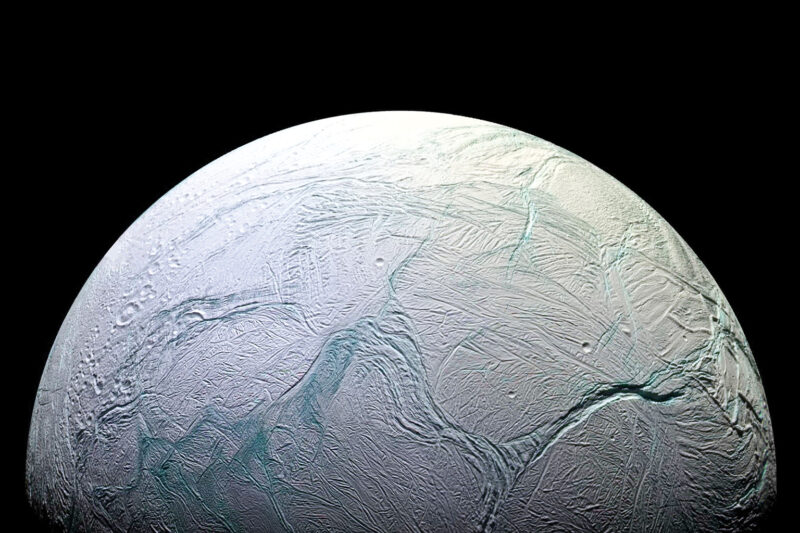

Scientists have found phosphorus, a crucial element responsible for many biological processes, in the ocean that lies under the thick surface of Saturn’s moon, Enceladus.

Scientists have found phosphorus, a crucial element responsible for many biological processes, in the ocean that lies under the thick surface of Saturn’s moon, Enceladus. Salty ice grains are being ejected into space by plumes from geysers on Enceladus’ surface. The discovery of phosphorus was made in these salty ice grains. Saturn’s faint outermost E ring contains material from these emissions. This discovery was made by National Aeronautics and Space Administration (NASA) spacecraft Cassini. According to scientists, as phosphorus plays a vital role in the creation of DNA, cell membranes and RNA, Enceladus has the potential to host extra-terrestrial life.
Did You Know?
Because the surface of Enceladus is coated in fresh, white ice, it reflects most of the sunlight that reaches it, making it one of the brightest surfaces in the solar system.





